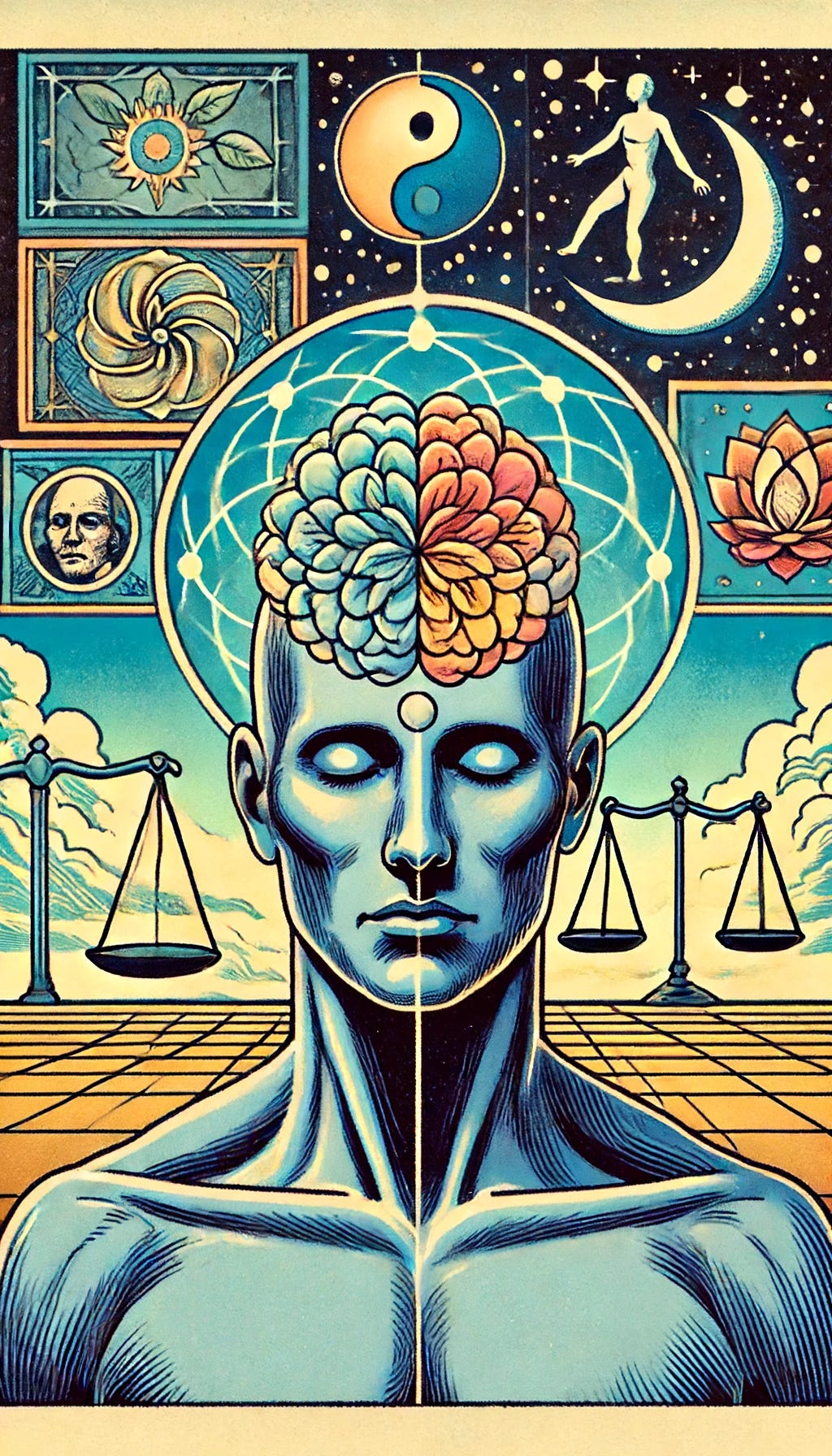Equilibrium
Equilibrium traces its roots back to the Latin language. The first part of the word is that equi- prefix, and it means exactly what we English speakers today think it means: equal. The second half comes from the root word libra, which can mean either a balance, or to balance.
When these words come together, you can imagine that the scales are balanced. Nothing is particularly out-of-whack.
This funny Latin etymological invention came to prominence during the early stages of the Industrial Revolution, just as different fields in science were starting to revolutionize our understanding of how everything works.
The original idea of balanced scales is still a useful way to think about complex modern systems. We can see this today in physics, chemistry, economics, and even in our social systems. It’s an important concept for us to wrap our heads around!
In physics, equilibrium governs any stable system. This includes giant things like our Sun, which faces its own titanic struggle every moment…



